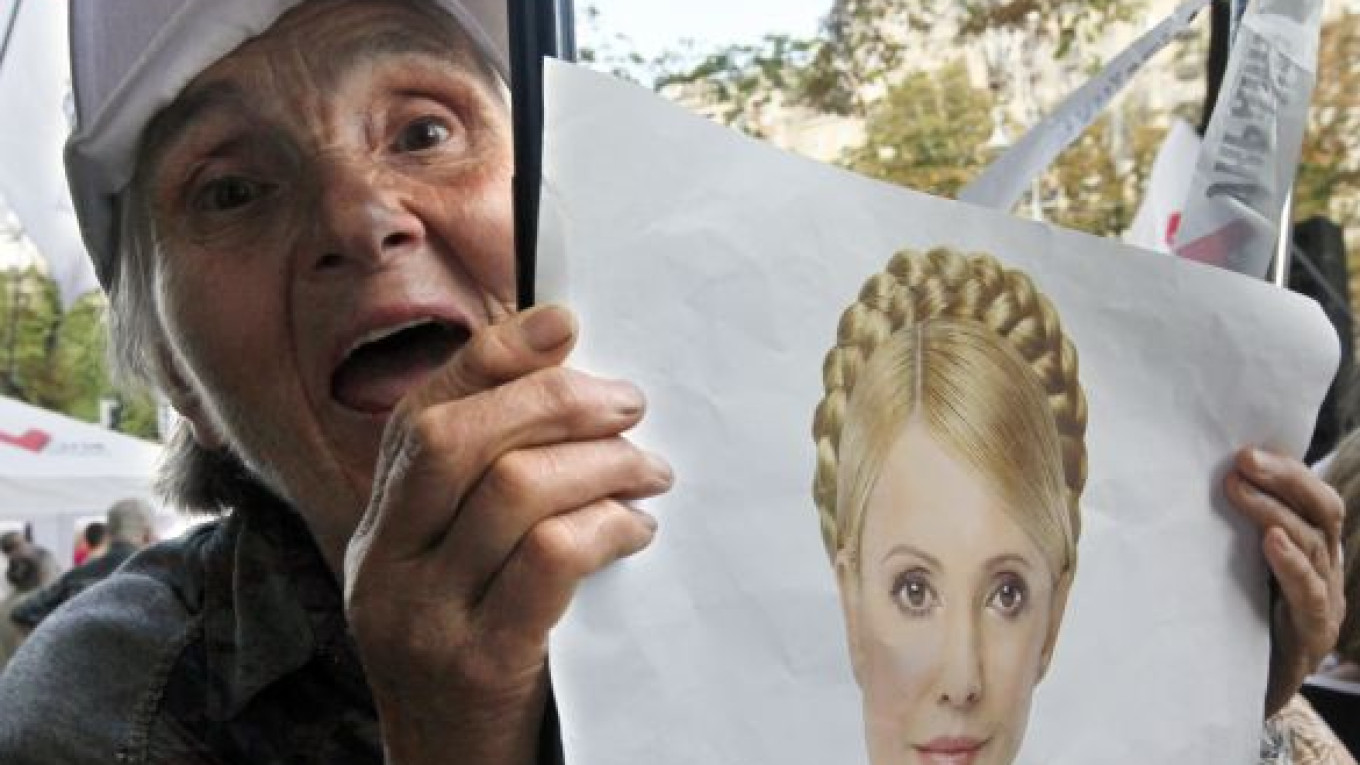KIEV — Yulia Tymoshenko, former prime minister of Ukraine and now a leading opposition figure, pleaded not guilty Friday to abuse-of-office charges, dismissing them as politically motivated.
Prosecutors accuse Tymoshenko, who narrowly lost the 2010 presidential election to current leader Viktor Yanukovych, of illegally forcing through in 2009 a gas supply deal with Russia that Yanukovych's government called a sellout of national interests.
The case has raised concerns in the West and, in particular, in the European Union, with which Ukraine wants to sign agreements on free trade and association.
"This criminal case was made up on Yanukovych's order," Tymoshenko's web site quoted her as telling the court. "The criminal charge is something to be shamed of … where dates and figures do not match."
The 2009 deal brokered by Tymoshenko linked the gas price to the price of oil and oil products, ending a standoff between Kiev and Moscow that briefly disrupted supplies of Russian gas to Western Europe.
Tymoshenko faces a number of other criminal charges related to her two terms as prime minister as well as earlier business activities. She has been accused, in particular, of misusing receipts from the sale of carbon emission permits.
Since Yanukovych came to power, several former members of Tymoshenko's cabinet have been prosecuted for alleged offenses in office and at least one has fled Ukraine.
Yanukovych has denied that any politics was involved and says his government is simply fighting corruption.
Tymoshenko was one of the leaders of the 2004 Orange Revolution. However, the West-leaning coalition brought to power by the revolution soon fell apart, making the government poorly prepared to deal with the global economic downturn and allowing Yanukovych to win a rematch in early 2010.
A Message from The Moscow Times:
Dear readers,
We are facing unprecedented challenges. Russia's Prosecutor General's Office has designated The Moscow Times as an "undesirable" organization, criminalizing our work and putting our staff at risk of prosecution. This follows our earlier unjust labeling as a "foreign agent."
These actions are direct attempts to silence independent journalism in Russia. The authorities claim our work "discredits the decisions of the Russian leadership." We see things differently: we strive to provide accurate, unbiased reporting on Russia.
We, the journalists of The Moscow Times, refuse to be silenced. But to continue our work, we need your help.
Your support, no matter how small, makes a world of difference. If you can, please support us monthly starting from just $2. It's quick to set up, and every contribution makes a significant impact.
By supporting The Moscow Times, you're defending open, independent journalism in the face of repression. Thank you for standing with us.
Remind me later.



